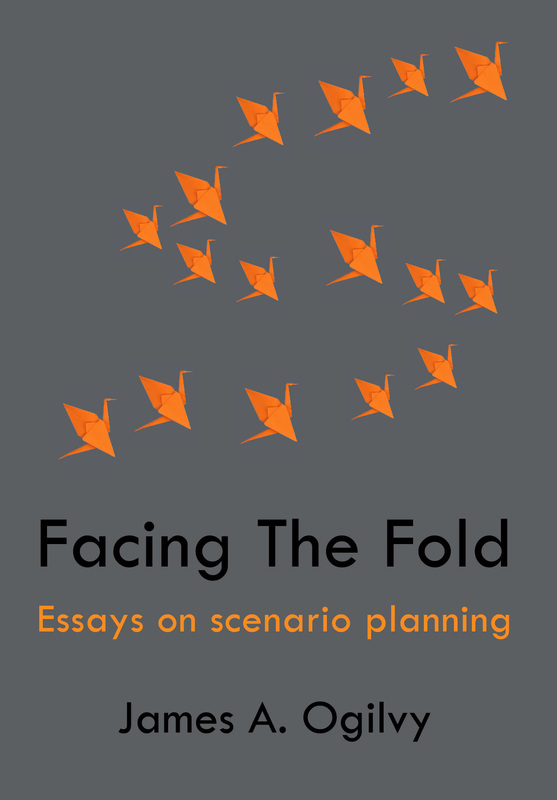|
Imprint: Triarchy Press
Published: 2011 List Price: £30.00 Format: Paperback Extent: 312pp. Size: 17 x 24.4 cm ISBN: 978-1-908009-22-7 Tags: Scenario Planning, Futures, Organisations, Strategy, Strategic Planning Facing the Fold Essays on Scenario Planning James Ogilvy Book main page Reviews Contents Read an Extract Buy the paperback (£30):Buy the pdf (£25)Click the 'Buy' button below. At checkout, click No postage on ebooks from the dropdown.
After paying, we will send an immediate confirmation and email your ebook file within 24 hours. pdf ISBN: 978-1-908009-73-9
version: bookmarked pdf (pdf text cannot be edited, printed or copied - email us if you need this capability.) Buy Managing the Future, Facing the Fold and Strategic Foresight (combined list price £55) for just £30. Use the order box below:
|
Facing the Fold:
|
More about the book:
Book main page
The Author Reviews Contents Read an Extract Related Titles: Managing the Future The Future of the Mind ExploreKey organisational theories
Complexity Thinking Cultural Theory Design and Systems Thinking Triarchy Theory Leading and Managing Organisations Education/Police/Public Sector The Future Innovation Leadership Business/Management Audits Vanguard Method Society International Futures Forum The Money System Mythogeography Counter-Tourism Society, Somatics, Movement Books: Ideas: Thoughts and Articles: |

